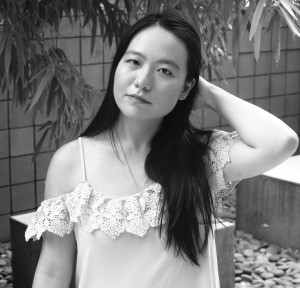In We Remain Traditional, Sylvia Chan juxtaposes the elegy, the conflict, and the brashness of a relationship that summons wild musicality in its love and frustration. Through the speaker and Adam, the beloveds offer thirty-two consolations for the gendered history of Chinese American women—a break and affirmation of their traditions. What saves these two characters is their music—a peace treaty for the book’s form or “fractured paradise,” a language that protects and protests their bodies in Oakland, California.
Marked by vulnerability and intimacy, Chan interrogates a young woman’s childhood sexual abuse. In the vein of Stacy Doris and Paul Celan, Chan asks, because she is a child of violent tradition, what is her visceral grief? This is a speaker who aspires to create universal experiences for her listeners, to transform jazz into narrative. This is a wild, beautiful, and ambitious first book: Chan refuses to apologize for the terror in her conviction and compassion. To choose a man who is behind her sexual, psychological, and political exploitation is to forgive his narcissism, aggression, and addiction. To love, simply, is to live unafraid of pushing boundaries and being happy.
“Sylvia Chan’s We Remain Traditional is anything but that. It is a nervy, saturated tale told with improvisational fervor—richly personal but crosscut by history and culture: “part waltz, part bitter / lawless beauty.” There are inter-leavings of politics, race, music, amor, all in the service of a young woman’s traversal of memory and wakefulness. The verse is as bravely set as the “story” is, with a freedom that feels inevitable: fragmented, dispersed, yet held together by a sinewy poetic logic. The body of this text is a lived one; so, too, it opens into life.”
—Aaron Shurin
 Sylvia Chan is a poet from Hayward, California. Formerly a jazz pianist in the San Francisco East Bay, she lives in Tucson, where she teaches at the University of Arizona, serves as nonfiction editor for Entropy, and is a court advocate for foster kids in Pima County.
Sylvia Chan is a poet from Hayward, California. Formerly a jazz pianist in the San Francisco East Bay, she lives in Tucson, where she teaches at the University of Arizona, serves as nonfiction editor for Entropy, and is a court advocate for foster kids in Pima County.